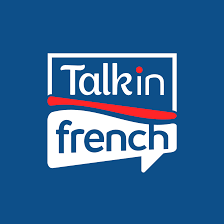Requests in French
Politeness in French
PRACTICAL IDEAS AND RESOURCES
Resources in this section curated by: Illena Trebont

The Ultimate Guide to French Politeness and Niceties | Article
French politeness rituals can diverge significantly from English politeness rituals. It’s important to have a sense of what to expect when interacting with native speakers. This article describes proper linguistic etiquette for using honorific titles, faire la bise (kiss on the cheek), and attending a meal in someone’s home.

French etiquette: How to be polite in France | Blog Post
This blog post, written by a New Yorker who has lived in France, helps give American students a sense of how French linguistic politeness differs from American linguistic customs. The reader learns about how to navigate service encounters at the grocery store and using titles.

How to be Polite in French – Quelques formules de politesse | Blog Post
This article describes how to make requests in service encounters.The author explains that the first phrase that French learners usually learn to make a request, “Je voudrais” (I would like), is not suitable for service encounters. Instead of using “Je voudrais”, more indirect request strategies should be used. The article provides guidance for using indirect requests in service encounters.

How to Say Please in French — Not Just “S’il Vous PlaÎt” | Blog Post
French speakers do not use phrases that literally “please” in as many contexts as English speakers do. This article guides learners through situations where English speakers would use please, but French speakers use other phrases.
ACADEMIC RESOURCES ON POLITENESS IN FRENCH
Resources in this section curated by: Illena Trebont
Ruytenbeek, N. (2019). Do indirect requests communicate politeness? An experimental study of conventionalized indirect requests in French email communication. Journal of Politeness Research. 16. 10.1515/pr-2017-0026.
This empirical study investigates the effect of power differences between interlocutors on the language that was used in emails to make a request. 122 native speakers of French were asked to write an email to ask for the recipient to contribute to a student journal. Half of the participants were instructed to write emails to another student while the other half of the participants were instructed to write an email to the Dean of Students. Results show that in emails to a person of higher status, students were more likely to use the formal pronoun vous, more formal greetings, and slightly more likely to use non-conventionalized request forms such as “Is it possible to VP (verb phrase)?”. Results also show that the native French speakers showed a strong preference for the conventionalized form “Can/could you VP?” in emails to people of higher and equal status, indicating that this strategy is most common in email requests. This study has important implications for teaching students about how to make requests via email.
